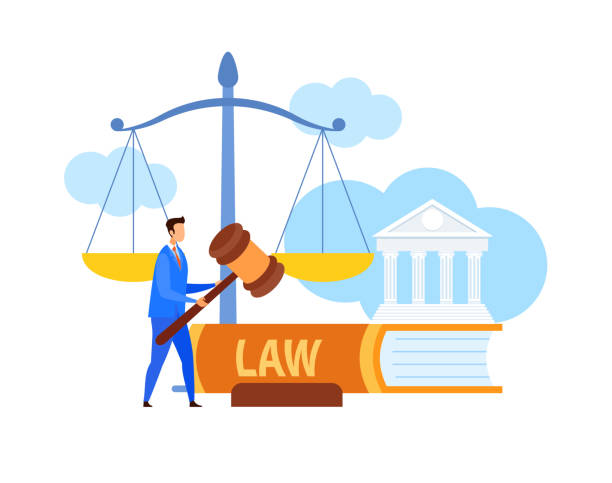People often ask our criminal lawyers this question: What is an indictable offence? We decided to write a general guide for those who wish to know more about indictable and summary offences in NSW. For the purposes of this article, we will focus on legislation based in NSW.
What Is an Indictable Offence in NSW?
Indictable offences are serious offences. The Crimes Act 1900 and Criminal Procedure Act 1986 govern matters related to indictable offences. As per Section 3 of the Criminal Procedure Act, the definition of indictable offence is as follows:
indictable offence means an offence (including a common law offence) that may be prosecuted on indictment.
Certain indictable offences include:
- Assault
- Murder and Manslaughter
- Larceny
- Fraud
- Robber and Burglary, etc.
Persons who commit indictable offences are liable to receiving severe penalties. Either the District Court or the Supreme Court hears those matters.
Serious indictable offences usually carry severe penalties, with the highest sentence being life imprisonment. Depending on the offence, the penalties can include:
- Fines
- Imprisonment
- Conditional release order
- Community correction order
- Intensive correction order
State Wise Legislation in Relation to Indictable Offences
Depending on different states, the legislation that deals with indictable offences will differ:
- Crimes Act 1900 (NSW)
- Crimes Act 1958 (VIC)
- Criminal Code Act 1899 (QLD)
- Criminal Law Consolidation Act (SA)
- Criminal Code Act 1924 (TAS)
- Crimes Act 1900 (ACT)

What are Indictable offences Compared to Summary Offences?
Compared to indictable offences that are major criminal offences, summary offences are less serious offences. For example, verbal abuse, offensive conduct, failing to leave disrespectful premises are all types of less serious, summary offences. The Local Court usually deals with summary offences.
Possible Defences against indictable offences
For those who are charged with indictable offence, there may be some defences available depending on the circumstance. If the accused believes they had a reasonable ground to act in way that leaded to commission of the offence, their criminal defence lawyers can help them get a lesser charge, or get the charges dismissed.
For example, the defendant can argue that they acted in a certain way because they were under duress. If they were facing threat of harm or death to themselves or their family. Another instance can be if they acted in such a way due to honest mistake of fact. This will be the case if they genuinely believed that their actions were not of a criminal nature.
However, note that this is extremely tricky. It is best to speak with a lawyer on this matter. In other words, note that no matter what the defence is, the defendant needs to provide solid evidence. Our team of criminal lawyers can help anyone accused of indictable offences with building a case against the charges that they are facing.
For more information on this, please contact our criminal lawyers.
Serious Indictable Offences
A strictly indictable offence, or serious indictable offence include crimes that carry maximum penalties such as life imprisonment. The Supreme Court of NSW prosecutes these serious criminal offences – including murder, or some types of sexual assault for instance.
What Is an Indictable Offence: Frequently Asked Questions (FAQs)
1. Which courts deal with indictable offences?
A District Court or Supreme Court judge deals with indictable offences. On the other hand, Office of the Director of Public Prosecution (ODPP) conduct and institute prosecutions in relation to indictable offences.
2. What is the difference between summary offences and indictable offences?
As discussed above, summary offences are less serious criminal offences whereas indictable offences are serious offences. Watch the brief video at the end of this article for more information.
3. What do I do if I’ve been charged with an indictable offence?
If you have been charged with an indictable offence, it is important for you to get in touch with leading criminal defence lawyers. Contact our team for more information.
4. What are examples of indictable offences?
Some indictable offences include larceny, fraud offences, manslaughter, assault offences, murder, aggravated burglary.
5. What is the difference between Table 1 and Table 2 offences in NSW?
Table 1 offences are most serious offences including robbery and murder. On the other hand, Table 2 offences are less serious than Table 1 offences. These include common assault and common assault. Parties charged with committing Table 2 offences can also face imprisonment or fines.

Obtaining Legal Advice from Criminal Lawyers
If you are facing criminal matters, it is necessary to speak with lawyers who have the experience of dealing with a variety of criminal law cases. Our team at JB Solicitors have years of experience of handling criminal law cases.
Contact us for more information.
@jbsolicitors Indictable vs Summary offences: What are the differences? #CriminalLawyers #SydneyLawyers #SummaryOffences #TrafficLawyers
♬ original sound – JBSolicitors
